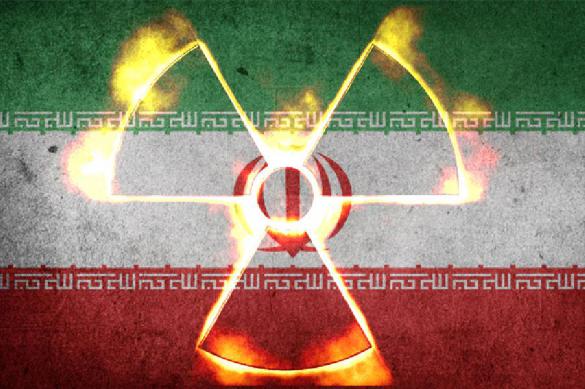Another anti-Russian campaign almost ready with Iran being the scapegoat
William Douglas Campbell, FBI's former informant at Russia's Atomic Energy Corporation (Rosatom) said that Russia had helped Iran build a nuclear bomb. It appears that Russia will have to deal with another round of accusations and more sanctions.

"Russia was intercepting nonpublic copies of international inspection reports on Tehran's nuclear program and sending equipment, advice and materials to a nuclear facility inside Iran," The Hill wrote. "Moscow, specifically the leadership in Moscow, were concerned that it would offset the strategy they had here in the United States if the United States understood the close relationship between Moscow and Tehran," the article reads. The strategy stands here for Rosatom's purchase of uranium industry companies in the USA.
Vladimir Sazhin, senior researcher at the Institute of Oriental Studies of the Russian Academy of Sciences, told Pravda.Ru that Iran conducted its nuclear program in two directions. Iran would purchase various nuclear technologies or dual-purpose technologies. "They would be engaged in intelligence, technology theft and they would also invite foreign scientists to build the basis for their nuclear infrastructure. Russian nuclear scientists would possibly go to Iran too to make good money, but it was not the state that would send them there. The Chinese, the Germans, and the Argentines were also working for Iran," the expert told Pravda.Ru.
In addition, Russia, under the control of the IAEA, was building the Bushehr nuclear power plant in Iran and training specialists for it, Vladimir Sazhin said in an interview with Pravda.Ru. "There is no secret information on nuclear energy now. You can open the textbook to read how to make an atomic bomb. Yet, the technology and the infrastructure are secret," Vladimir Sazhin told Pravda.Ru.
President Vladimir Putin has repeatedly stated before that Russia remains opposed to the emergence of nuclear weapons in Iran. The positions of the Russian Federation and the United States coincide regarding this matter. According to the IAEA, Iranian specialists managed to obtain uranium enriched by the isotope U-235 at a level of 3.7 percent on centrifuge cascades. This level of enrichment does not allow Iran to create nuclear weapons. The fuel that Russia supplies to the country does not exceed the declared limit, and Iran returns all spent fuel to Russia.
In the summer of 2015, an agreement known as the Joint Comprehensive Plan of Action (CFA) was signed with Iran in Vienna. The agreement brings together the United States and Iran, Russia, China, Britain, France and Germany. In accordance with the agreement provides, Tehran refuses to produce weapons-grade plutonium and reduces the amount of enriched uranium available in exchange for the lifting of international sanctions. Barack Obama considered the agreement with Iran his main achievement on the international arena.
The Trump administration, however, believes that the United States should not trust Iran. Trump insists the nuclear deal with Iran should be amended, because Teheran, as the US President believes, did not stopped working on a nuclear bomb and means for its delivery.
The above-mentioned confessions from the former FBI informant suggest that the West may continue its struggle against Russia on the "Iranian front." The West failed to hold Russia responsible for the chemical attack in Syria, the Salisbury incident is falling apart as well, but the West may put more pressure on Russia for its nuclear assistance to Iran. The West is forced to misinform its secretive structures to demonize Russia further, to distract people's attention from domestic problems and satisfy the interests of the military-industrial complex.
Lyuba Lulko (Stepushova)
Pravda.Ru
Read article on the Russian version of Pravda.Ru
Subscribe to Pravda.Ru Telegram channel, Facebook, RSS!

